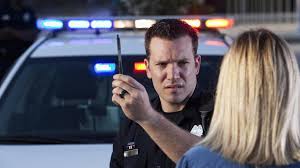The strict enforcement of DUI laws, such as CVC 23152(a), reflects California’s commitment to combating impaired driving. One of the foundational elements in DUI enforcement is the field sobriety test (FST). These tests are crucial in determining the level of impairment and are pivotal in both the arrest process and subsequent legal proceedings. Understanding the role of field sobriety tests in a California DUI case is vital for anyone facing such charges, and this blog delves into why they hold such importance.

The Legal Framework: Understanding CVC 23152(a)
California Vehicle Code 23152(a) explicitly states that it is unlawful for a person to drive a vehicle under the influence of alcohol. This code sets the stage for law enforcement officers to investigate, stop, and assess drivers suspected of DUI. The law does not merely center on blood alcohol concentration (BAC) levels but also examines actual impairment. This distinction underscores the relevance of field sobriety tests in establishing whether a driver is impaired regardless of the BAC level.
The Role of Actual Impairment
Actual impairment refers to the condition where an individual’s ability to operate a vehicle is hindered due to alcohol or drug consumption. Notably, CVC 23152(a) targets drivers whose faculties are impaired to the extent that they cannot drive safely. In this context, field sobriety tests become instrumental. They offer a tangible way for the Orange County Sheriff’s Department and CHP officers to observe and document the signs of impairment. Failing these tests can provide relevant evidence that supports the accusation of impairment, even if the driver’s BAC is below the legal limit.
NHTSA Standardized Field Sobriety Tests
The National Highway Traffic Safety Administration (NHTSA) has formulated a set of standardized field sobriety tests that are widely utilized across the United States. These tests are designed to measure a driver’s physical and cognitive abilities and include:
1. Horizontal Gaze Nystagmus (HGN) Test: This test involves following an object, such as a pen or a flashlight, with the eyes. The officer looks for involuntary jerking movements of the eyes, which can be indicative of alcohol impairment.

2. Walk-and-Turn Test: This divided-attention test requires the driver to walk heel-to-toe along a straight line, turn, and walk back. Difficulty in maintaining balance, starting too soon, or failing to follow instructions can suggest impairment.
3. One-Leg Stand Test: The driver must stand on one leg while counting aloud for a specific duration. Swaying, using arms for balance, hopping, or putting the foot down can indicate the presence of impairment.
These standardized tests are critical because they provide consistent and reliable indicators of impairment that are recognized by the courts.
The Importance in the Legal Process
Field sobriety tests are not just tools for immediate assessment; they play an essential role throughout the legal process of a DUI case.
Initial Assessment and Arrest
The first significant use of field sobriety tests occurs at the roadside stop. When an officer pulls over a driver suspected of DUI, the results of these tests provide grounds for further action. Passing or failing the tests helps the officer determine whether to make an arrest. Without this initial evidence, it would be challenging for an officer to justify the legality of the arrest, particularly if the driver’s BAC is below the legal limit.
Evidentiary Value in Court

The results of field sobriety tests carry substantial evidentiary weight in court. During a trial, the prosecution will rely on the officer’s observations and the driver’s performance on these tests to argue that impairment was present. Moreover, because these tests are standardized and sanctioned by the NHTSA, their results are seen as credible and objective measures of impairment.
Defense strategies often focus on challenging the validity of field sobriety tests, questioning the conditions under which the tests were administered, the clarity of the instructions given, or the physical or medical condition of the suspect. Moreover, a skilled Orange County DUI attorney will point out that there is no baseline performance to compare the results to. That is to say, the officer has no idea how well the driver can perform these tests with no alcohol in their system. The performance may be identical.
Advocacy and Defense with a Mission Viejo DUI Lawyer

The complexity of DUI cases underscores the need for proficient legal representation. A Mission Viejo DUI lawyer plays a pivotal role in examining the intricacies of the field sobriety tests conducted and their interpretation by law enforcement officers. Competent legal counsel can:
1. Review Test Administration: An Orange County DUI attorney will scrutinize how the field sobriety tests were administered. Any deviations from NHTSA protocols can potentially undermine the prosecution’s case.
2. Challenge Observations and Assumptions: An experienced Orange County DUI lawyer can challenge the subjective observations of the arresting officer, arguing that factors unrelated to alcohol consumption (e.g., medical conditions, nervousness, environmental factors) affected the test results.
3. Leverage Scientific Evidence: Legal counsel may employ expert testimony or scientific analysis to question the reliability of field sobriety tests, reinforcing the argument against actual impairment.
4. Negotiate or Argue in Court: Whether advocating for reduced charges, negotiating plea deals, or preparing a defense for trial, a knowledgeable Mission Viejo DUI lawyer can strategically use or contest the field sobriety test results.
Summary
Field sobriety tests are integral to the enforcement of DUI laws in California. They serve as essential tools for determining actual impairment and provide a foundation for arrest decisions and court proceedings. The standardized nature of these tests, endorsed by the NHTSA, adds to their credibility in the legal system. For individuals facing DUI charges, understanding the role and potential implications of field sobriety tests is crucial. Securing the expertise of a proficient Orange County DUI attorney can significantly influence the outcomes by meticulously analyzing test administration and effectively challenging the evidence presented. The interplay between CVC 23152(a), actual impairment, and field sobriety tests highlights the sophistication involved in DUI cases and the imperative of informed legal defense.
